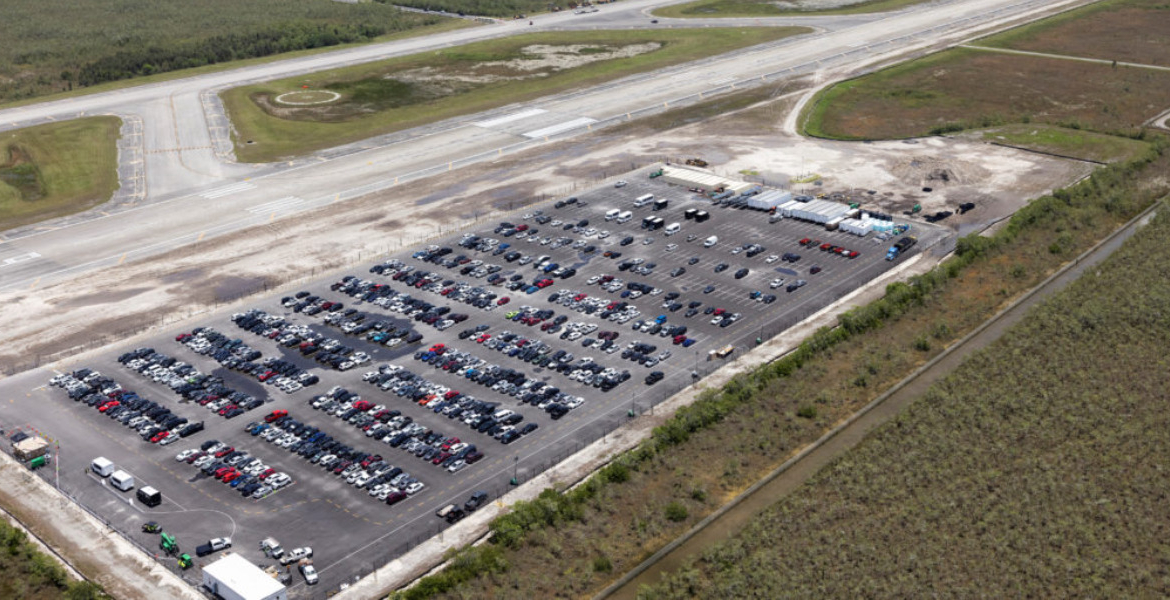Florida Launches Deportation Operations From Controversial Everglades Facility

Florida's state-operated immigration detention centre in the Everglades has commenced deportation operations, igniting a firestorm of legal, environmental, and ethical debate.
Governor Ron DeSantis confirmed on Friday the first deportation flights had departed from the facility, known as "Alligator Alcatraz", carrying approximately 100 detainees. Hundreds more have been transferred to federal deportation hubs across other states. The facility, established on a repurposed airfield deep within the Everglades, is believed to be the only state-run migrant detention centre in the United States. Its rapid construction and commencement of operations have triggered legal challenges, environmental opposition, and concerns about transparency and due process for detainees.
The site, consisting of temporary structures such as tents and trailers, has been fitted with aviation infrastructure, including radar, runway lighting, and ground-to-air communications systems. State officials maintain that the airfield, previously used for training purposes, can accommodate large commercial aircraft for both day and night operations. The presence of 18,900 litres of jet fuel on-site indicates the facility is primed for continuous deportation activities.
DeSantis has positioned the centre as a cornerstone of Florida’s immigration enforcement strategy, citing the necessity to uphold "law and order". The state estimates an annual operational cost of $450 million, anticipating partial reimbursement from the Federal Emergency Management Agency. Critics, including members of DeSantis’s own party, have questioned the financial viability, noting that the cost per detainee exceeds that of federal Immigration and Customs Enforcement (ICE) facilities and state prisons.
Last week, legal scrutiny intensified when the American Civil Liberties Union (ACLU) initiated a lawsuit challenging the conditions and legal access afforded to detainees. The ACLU contends that individuals held at the facility have been denied adequate communication with legal counsel and the opportunity to petition for release, violating constitutional protections.
“The U.S. Constitution does not allow the government to simply lock people away without any ability to communicate with counsel or to petition the court for release from custody,” said Eunice Cho, senior counsel with the ACLU’s National Prison Project.
State officials acknowledge delays in facilitating on-site legal visits, attributing the issue to unresolved technology problems. Kevin Guthrie, director of the Florida Division of Emergency Management, indicated that lawyer access "should be starting" on Monday. This delay has further fuelled criticism from legal advocates and civil rights organisations, who argue that the lack of transparency undermines the legitimacy of the facility's operations.
Environmental groups have also launched legal action, seeking to halt construction and expansion of the detention centre due to its proximity to protected lands. The facility’s location within the Everglades—a region renowned for its ecological sensitivity—has drawn sharp rebuke from conservationists. Guthrie dismisses these concerns, asserting that the airfield previously supported high levels of aviation activity, although this claim remains unverified.
Local government officials have voiced frustration over the state’s unilateral actions. Miami-Dade County Mayor Daniella Levine Cava has renewed calls for transparency and oversight, criticising the lack of formal communication from state authorities. In a letter to Guthrie, she wrote, “Our residents deserve full accountability for operations taking place on county-owned property.”
The facility currently holds "a couple thousand" detainees, according to DeSantis, with plans underway to double its capacity to 4,000. Should demand increase, the governor has indicated that a second detention centre may be established in North Florida. To expedite deportations, the DeSantis administration has proposed deputising Judge Advocate General Corps officers from the Florida National Guard to serve as immigration judges at the facility.








Add new comment